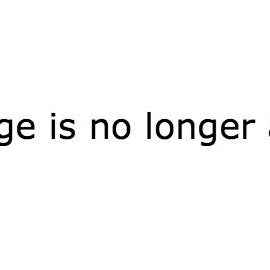
I saw the pilot episode of Lost a few months before it premiered on ABC exactly 10 years ago today — on Sept. 22, 2004.
I was working in television development at the time, and a box of pilots — they may have even been on VHS tapes — had just arrived from a talent agency. My co-workers and I gathered in a tiny, cramped office to sort through the 30–40 screeners, most with titles and premises now forgotten, to find our copy of Lost. Damon Lindelof was an unknown name to us then, but we were addicted to Alias, the trippy espionage drama from Lost co-creator J.J. Abrams, who had also won our hearts with the wistful Felicity.
Twitter and social media as we now know them did not yet exist and, while we had followed the development of the super-expensive pilot in the Hollywood trades (when people still read printed trade publications), we knew nothing of the plot beyond the seemingly simple strangers-survive-a-plane-crash premise. We had no idea just what was in store for us as we dimmed the lights and hit "play."
The 90-minute pilot was full of scares, surprises, and even a few laughs (that wonky polar bear!), and, most importantly, it introduced mysteries that had us immediately talking and questioning. And it's the latter that became a trademark effect of the show, one that would be closely associated with Lost until its finale in 2010 and well beyond, and one that was instrumental in helping to cement the show's massive success. (Almost 20 million people tuned in to the pilot when it aired.) What was this island? What was a crazed polar bear doing in the jungle? What was going to happen to these survivors and, to borrow the words of rocker Charlie (Dominic Monaghan), "Where are we?"


This was still way before the Dharma Initiative, before the hatch and the resurrection pool, before time travel and the four-toed statue, before the "we have to go back" wailing of a heavily bearded Jack Shepherd (Matthew Fox), and before Benjamin Linus (Michael Emerson) and The Others. It was before the show became a mystery box phenomenon and was instead about seemingly ordinary characters thrust together under extraordinary circumstances. Live together, die alone.
And in the pilot, the characters were largely archetypical: the Hero, the Lovers, the Rebel, the Explorer, the Jester, the Magician. John Locke (Terry O'Quinn) sat on the beach, enraptured, an orange slice in his mouth becoming a haunting smile. Kate (Evangeline Lilly) put the oxygen mask on her injured captor before putting one on herself. Sawyer (Josh Holloway) attacked Sayid (Naveen Andrews), calling him a terrorist.
The pilot embraced the conflict of the situation, showing suspicion among the strangers. It was about the formation of a new society, its innate stresses, and about the way in which people deal with adversity. Is Jack an alcoholic? Is Charlie a heroin addict? What did Kate do to land herself in handcuffs? There was a sense of the unknown to these characters, their backstories — their lives before the crash of Oceanic Flight 815 — being teased out slowly and deliberately to a hungry audience. This was a narrative structure that would quickly become the baseline within Lost, a pattern that would become so closely identified with the show when it's used on other television shows, the debt to Lost becomes apparent.


I was instantly hooked — it was unlike anything else I had seen on television, a mash-up of genres and tropes. It was Survivor but scripted. It was Gilligan's Island but instead of coconut radios, there was a puzzling French distress call. It was William Golding's Lord of the Flies — would this disparate group of survivors work together or turn on one another?
Over the coming months, the questions surrounding the island filled my head and, when I started my blog Televisionary in 2006, Lost was a first and favorite topic. I wrote hundreds of thousands of words about the show over the course of its six-season run. Like so many others, I theorized, deconstructed, and parsed each episode for meaning. Each time one question was answered, several others emerged to take its place, providing more fodder for critics and audiences alike.
Showrunners Lindelof and Carlton Cuse created storylines that operated on multiple levels, enticing, confounding, and amazing viewers, demanding that they not watch passively but become active participants in the show's mysteries, sleuthing every week — even between seasons — to make sense of the island and its inhabitants.
During the show's run, I changed jobs and then industries altogether. Like the castaways, I reinvented myself after setbacks — getting pink-slipped and looking for work — and other adversities. Other shows came and went, but my obsession with Lost remained steadfast and true, and I still felt the indescribable sense of wonder and awe that came from my initial viewing in that dark, cramped office.
Ten years later, I'm now a husband and a father and my life, professional and personal, has changed immeasurably. And while I may not have been satisfied with how Lost ultimately ended, the epic journey to reach that destination — including both the highs and the lows, the revelations and the red herrings — helped shape both the television landscape and who I am today. And I wish, like Desmond Hume (Henry Ian Cusick), that I could send myself back in time and relive that first, fateful screening all over again.
